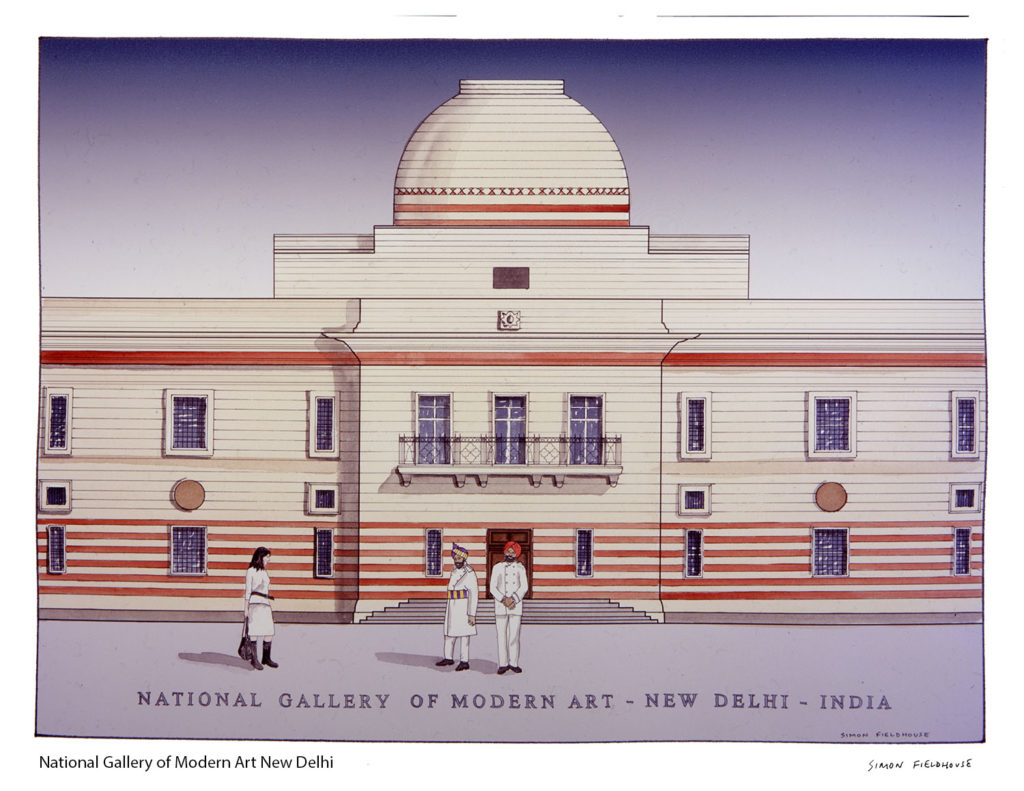
National Gallery of Modern Art New Delhi
National Gallery of Modern Art New Delhi (NGMA) is the premier art gallery under Ministry of Culture, Government of India.The main museum at Jaipur House in New Delhi was established on March 29, 1954 by theGovernment of India, with subsequent branches at Mumbai and Bangalore. Its collection of more than 14,000 works includes works by artists such as Thomas Daniell, Raja Ravi Verma, Abanindranath Tagore, Rabindranath Tagore, Gaganendranath Tagore, Nandalal Bose, Jamini Roy, Amrita Sher-Gil as well as foreign artists, apart from sculptures by various artists. Some of the oldest works preserved here date back to 1857. The Delhi branch is one of the world's largest modern art museums.
Situated at the end of Rajpath, in the Central Hexagon around the India Gate, the building was a former residential palace of the Maharaja of Jaipur, hence known as Jaipur House. The butterfly-shaped building with a central dome and built in 1936, and designed by Sir Arthur Bloomfield, after the construction of Lutyens' Delhi. The Central Hexagon around the India Gate, where the buildings of leading princely states, was itself designed by Sir Edwin Lutyens.Though the idea of the National Gallery was floated in 1949, it was formally inaugurated by Vice-president Dr S.Radhakrishnan in 1954, in the presence of Prime Minister Jawaharlal Nehru. Hermann Goetz (1898–1976),a noted German art historian became its first curator and in time it added new facilities such as Art restoration services, an Art reference Library and a Documentation Centre.
Then in 2009, a new wing of the National Gallery of Modern Art was inaugurated adding almost six times the space to the existing gallery, plus it has a new auditorium, a preview theatre, conservation laboratory, library and academic section as well as a cafeteria and museum shop.